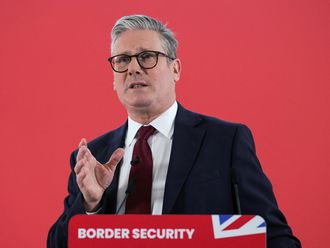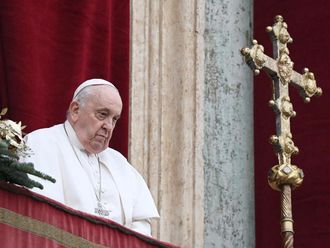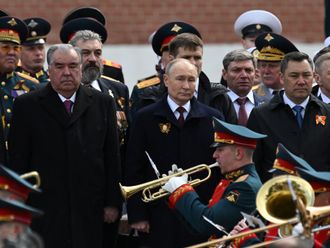Manchester, United Kingdom: Britain’s opposition Labour party leader Ed Miliband lays out his battle plan on Tuesday with an expected promise to tax wealthy homeowners in a bid to become the next prime minister.
Miliband’s speech will be at the last party conference before elections in May 2015 and is also expected to focus on boosting the minimum wage and protecting Britain’s National Health Service.
The politician will vow to restore faith in Britain, shaken by a Scottish referendum that rejected independence but forced a debate on a constitutional overhaul of the United Kingdom.
“Strip away all of the sound and fury and what people across England, Scotland and Wales, across every part of the UK, are saying is this country doesn’t care about me,” Miliband will say, according to the British media.
“And they are not wrong. They are right. But this Labour Party has a plan to put it right.”
Miliband has struggled to overcome an awkward public image as something of a political nerd and his lacklustre on-the-ground campaigning ahead of the Scottish referendum was outshone by former Labour leader and prime minister Gordon Brown.
The speech will lay out six goals including raising the number of people buying their first homes each year, halving the number of low-paid workers and creating green technology jobs as part of a “10-year plan” to improve the country.
Press reports said that Miliband would also announce a tax on wealthy homeowners to fund the health service.
The Labour leader hopes that the “mansion tax” on properties over £2 million (Dh12 million) will generate £1.2 billion-a-year (Dh7.2 billion or $1.96 billion) for the NHS as part of a ten-year plan to help “everyday working people”, continuing the party’s focus on rising living costs.
“We know there are huge, future pressures facing the NHS,” he will say. “So we are going to have to transform the way it works in the year ahead.”
Opinion polls of voting intentions indicate the Labour party enjoys a slight lead over the centre-right Conservatives led by Prime Minister David Cameron, although Miliband is unpopular with voters.
The party leader, who has promised to hike the minimum wage by 2020, will try to convince voters that left-leaning Labour can be trusted to run the world’s sixth largest economy, arguing that a strong economy can be created without big spending.
On Monday shadow finance minister Ed Balls indicated tighter controls on spending and a willingness to make “tough decisions” such as a cap on child benefits in a bid to emphasise budget responsibility.
Opinion polls indicate that Miliband is less trusted on the economy than Cameron and his finance minister George Osborne, who have cut public spending and overseen a burgeoning economic recovery.
British politics has long been dominated by the two main Labour and Conservative parties, but neither won a decisive enough victory to rule alone in 2010, forcing Cameron to forge a coalition with smaller party the Liberal Democrats.
The Labour and Conservative parties’ ability to win decisive majorities could be further eroded if the strongly Eurosceptic UK Independence Party builds on its success in May’s European parliament elections, when it emerged as the most popular party.
Miliband is also expected to address the aftermath of the referendum in Scotland, long a bastion of Labour support, but where its voters were split over whether to support independence.
The party, which campaigned against Scotland splitting from the rest of the UK, said on Monday it would have to work to win back Labour voters who backed independence.












